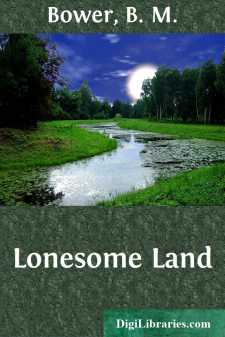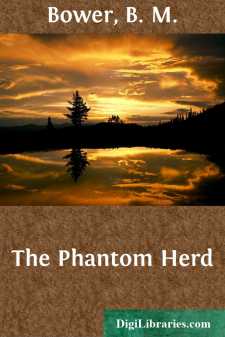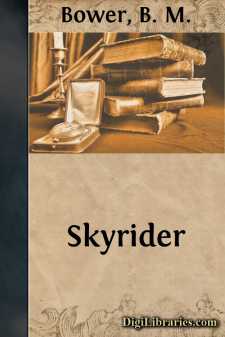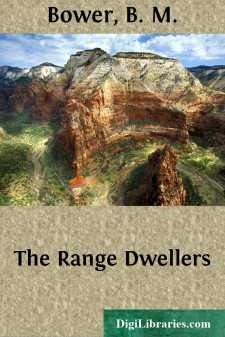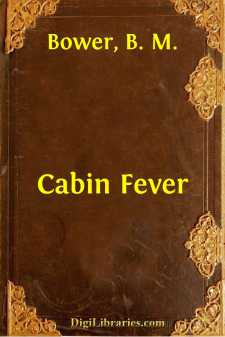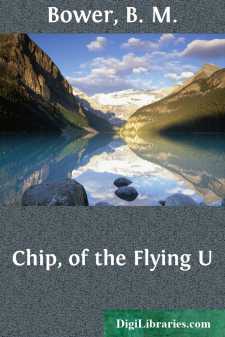Categories
- Antiques & Collectibles 13
- Architecture 36
- Art 48
- Bibles 22
- Biography & Autobiography 813
- Body, Mind & Spirit 142
- Business & Economics 28
- Children's Books 17
- Children's Fiction 14
- Computers 4
- Cooking 94
- Crafts & Hobbies 4
- Drama 346
- Education 46
- Family & Relationships 57
- Fiction 11829
- Games 19
- Gardening 17
- Health & Fitness 34
- History 1377
- House & Home 1
- Humor 147
- Juvenile Fiction 1873
- Juvenile Nonfiction 202
- Language Arts & Disciplines 88
- Law 16
- Literary Collections 686
- Literary Criticism 179
- Mathematics 13
- Medical 41
- Music 40
- Nature 179
- Non-Classifiable 1768
- Performing Arts 7
- Periodicals 1453
- Philosophy 64
- Photography 2
- Poetry 896
- Political Science 203
- Psychology 42
- Reference 154
- Religion 513
- Science 126
- Self-Help 84
- Social Science 81
- Sports & Recreation 34
- Study Aids 3
- Technology & Engineering 59
- Transportation 23
- Travel 463
- True Crime 29
Lonesome Land
by: B. M. Bower
Description:
Excerpt
CHAPTER I
THE ARRIVAL OF VAL
In northern Montana there lies a great, lonely stretch of prairie land, gashed deep where flows the Missouri. Indeed, there are many such—big, impassive, impressive in their very loneliness, in summer given over to the winds and the meadow larks and to the shadows fleeing always over the hilltops. Wild range cattle feed there and grow sleek and fat for the fall shipping of beef. At night the coyotes yap quaveringly and prowl abroad after the long-eared jack rabbits, which bounce away at their hunger-driven approach. In winter it is not good to be there; even the beasts shrink then from the bleak, level reaches, and shun the still bleaker heights.
But men will live anywhere if by so doing there is money to be gained, and so a town snuggled up against the northern rim of the bench land, where the bleakness was softened a bit by the sheltering hills, and a willow-fringed creek with wild rosebushes and chokecherries made a vivid green background for the meager huddle of little, unpainted buildings.
To the passengers on the through trains which watered at the red tank near the creek, the place looked crudely picturesque—interesting, so long as one was not compelled to live there and could retain a perfectly impersonal viewpoint. After five or ten minutes spent hi watching curiously the one little street, with the long hitching poles planted firmly and frequently down both sides—usually within a very few steps of a saloon door—and the horses nodding and stamping at the flies, and the loitering figures that appeared now and then in desultory fashion, many of them imagined that they understood the West and sympathized with it, and appreciated its bigness and its freedom from conventions.
One slim young woman had just told the thin-faced school teacher on a vacation, with whom she had formed one of those evanescent traveling acquaintances, that she already knew the West, from instinct and from Manley's letters. She loved it, she said, because Manley loved it, and because it was to be her home, and because it was so big and so free. Out here one could think and grow and really live, she declared, with enthusiasm. Manley had lived here for three years, and his letters, she told the thin-faced teacher, were an education in themselves.
The teacher had already learned that the slim young woman, with the yellow-brown hair and yellow-brown eyes to match, was going to marry Manley—she had forgotten his other name, though the young woman had mentioned it—and would live on a ranch, a cattle ranch. She smiled with somewhat wistful sympathy, and hoped the young woman would be happy; and the young woman waved her hand, with the glove only half pulled on, toward the shadow-dappled prairie and the willow-fringed creek, and the hills beyond.
"Happy!" she echoed joyously. "Could one be anything else, in such a country? And then—you don't know Manley, you see. It's horribly bad form, and undignified and all that, to prate of one's private affairs, but I just can't help bubbling over....


